Korean Idioms List, 1/n
Importance of understanding culture & history when learning a new language
I remember reading somewhere that when learning a new language people spend most of their time studying the vocabulary and grammar, and not nearly enough effort on the history and culture. In my humble opinion, this is a very important point. Without at least some understanding of it, you can decipher the words and sentence structure and still have no clue what the other person is saying.
I’ll give you a few examples. These would be a topic in an advanced Korean class, but this illustrates my point well. The following 2 screenshots are from Infinite Challenge (무한도전), my go-to TV show for reference. (I’m telling you, this show had everything!!)
The situation is, the middle two characters are having an argument (as always) about something.
And this guy says, “상투도 못 튼 놈이…” The word “놈” is x-ed out on the screen—it is a derogatory form of calling someone, like “man or dude,” but it can also be an endearing term depending on the context and usage.
상투도 못 튼 놈이…
상투 (sahng-too) is this form of hairdo where *married* men would tie and put their hair in a bun such as shown in the picture above. I’m sure you’ve seen it in K-dramas and movies. No one does it anymore, but this was the custom during the Joseon dynasty. 틀다 is the verb of tying the hair up in a sahng-too form. And 못~ is un~ or non~ something.
Going back to the first screenshot above, when the man on the right (in glasses, 박명수) is scolding the other guy (in wig, 정준하) as “상투도 못 튼 놈이…”, it means,
“how dare an unmarried man <speak to me like that…>” (박 was married, 정 wasn’t at the time, in real life)
You see, back in the day, if you were married (with sahng-too), it meant that you were automatically thought to be a mature adult, regardless of age. The catch is, men in those days would frequently marry when they were still in their early teens. And you were considered “more senior” than people who were older yet single (w/o sahng-too).
So, when these words are uttered, it essentially means, “you’re in no position to speak to me like that.”
** I know these explanations are long-winded, but based on my English-teaching days, when learning new language/expressions it always helps to understand the background story. So, please bear with me.
고무신 거꾸로 신는다.
고무 (go-moo) is rubber and 신 (shin) is shoes. So, this expression literally means, “wear the rubber shoes backwards.”
I’ve written on numerous occasions that South Korea was one of the poorest countries in the world in the 1950s. Things started getting better in the mid 1960s, but most people could only afford these cheap rubber shoes. And when men were drafted into the mandatory military service for 3 long years (now it’s 18~21 months), they would say this sentence in negative form to their girlfriends. Something like,
고무신 거꾸로 신지 마. (Don’t wear your shoes backwards.)
What do you suppose wearing shoes backwards means? Going in the opposite direction? It means, “breaking up with the current boyfriend, and going out with someone else” or “cheating on your boyfriend.” Remember one of the Korean bad luck superstitions? Refer to item 4. This is where it got started.
콩밥을 먹다.
콩 (cohng) is legumes (beans), and 밥 (bahp) is rice. So a 콩밥 is…
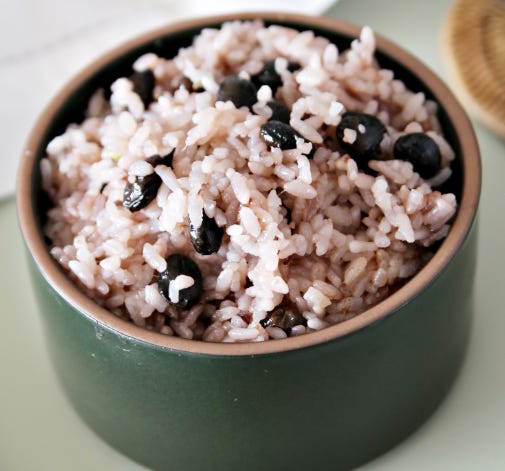
Now considered a healthy substitute for plain ol’ white rice, the word 콩밥 had an entirely different connotation a few decades ago. And the expression is still in use today.
This started in the 1920s and 30s during the Japanese occupation of Korea. 콩밥 is synonymous with food only for the prison inmates. This was originally supposed to have been a replacement for protein, something people weren’t getting enough of anyway. And it continued well into the 1960s and 70s, and even as recently as 1980s. Until… the cost of legumes started outweighing the cost of rice for the government.
When someone asks, 콩밥 좀 먹었냐? (Have you had some 콩밥?) It usually means, “did you serve time in the prison?”
Again, a scene from Infinite Challenge. The cast members and guests were divided into 2 teams, supposedly rival gangs, and they had to kill each other’s boss in a rough game of rock paper scissors. This team named themselves 콩밥천국, Cohng-bahp Paradise, clearly referring to 2 separate things—the one about the prison inmates and a ubiquitous kimbahp chain restaurant 김밥천국 (Kim-bahp Paradise).
The next time you watch K-drama or movie, and the subtitle mentions something about bean rice or rice with beans, this is probably what the dialogue is referring to.
An addendum to the 콩밥 reference above. Again, when you see a K-drama or movie scene where an inmate serves time and is released, there is always someone waiting outside with a piece of doo-boo (두부, “tofu” is Japanese word, and I would expect you to know the Korean word from now on).
This is a scene from the movie 친절한 금자씨 (official English title “Lady Vengeance”) where this very memorable male character is giving a whole doo-boo to the protagonist (금자) as she is being released from prison.
A multi-layered meaning to this.
doo-boo is white. “From now on, live your life as cleanly as white.”
doo-boo is made from soybeans, but soybeans cannot be made from doo-boo. “You’re finally released. Don’t reverse it.”
doo-boo is easy to digest. “We know you want to eat all sorts of stuff now that you’re out. Warm your stomach with doo-boo first.”
** I’ll go over the Korean courtesy titles, like “씨” and “님” in the next posting.

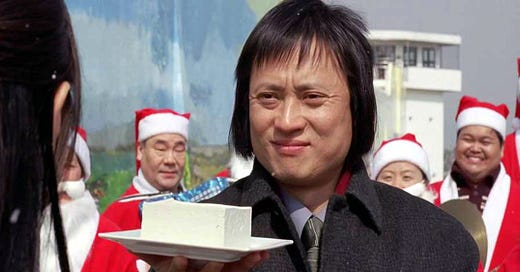




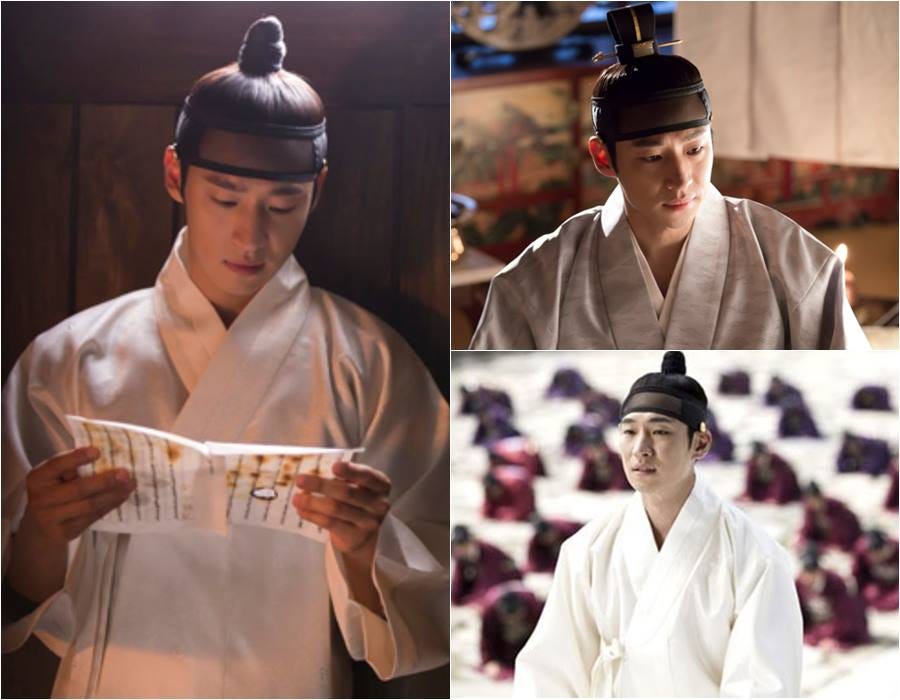
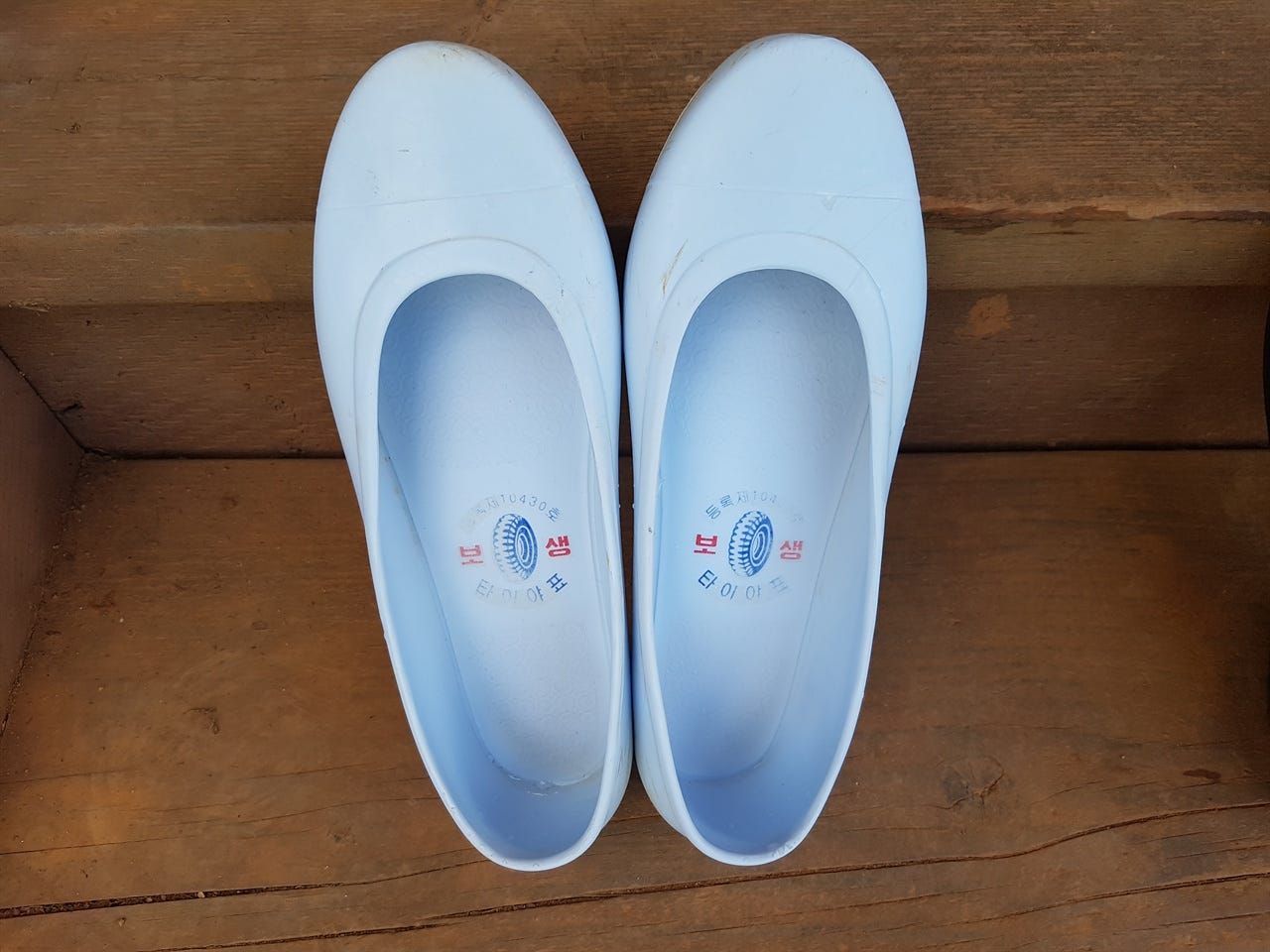
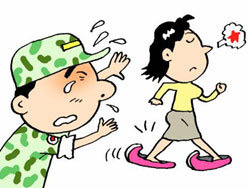
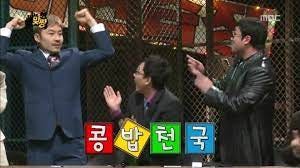
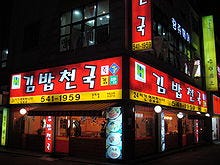
![무비톱10] 해괴한 헤어스타일로 유명한 영화 캐릭터들 무비톱10] 해괴한 헤어스타일로 유명한 영화 캐릭터들](https://substackcdn.com/image/fetch/$s_!-7HV!,w_1456,c_limit,f_auto,q_auto:good,fl_progressive:steep/https%3A%2F%2Fsubstack-post-media.s3.amazonaws.com%2Fpublic%2Fimages%2F3cbb3ca9-97ab-4646-a1f5-28e93aefa06a_1200x563.jpeg)
감사, you present this discussion of idioms with a light heartedness and humor that makes reading about language enjoyable as well as informative. Mandatory new vocab. today 두부